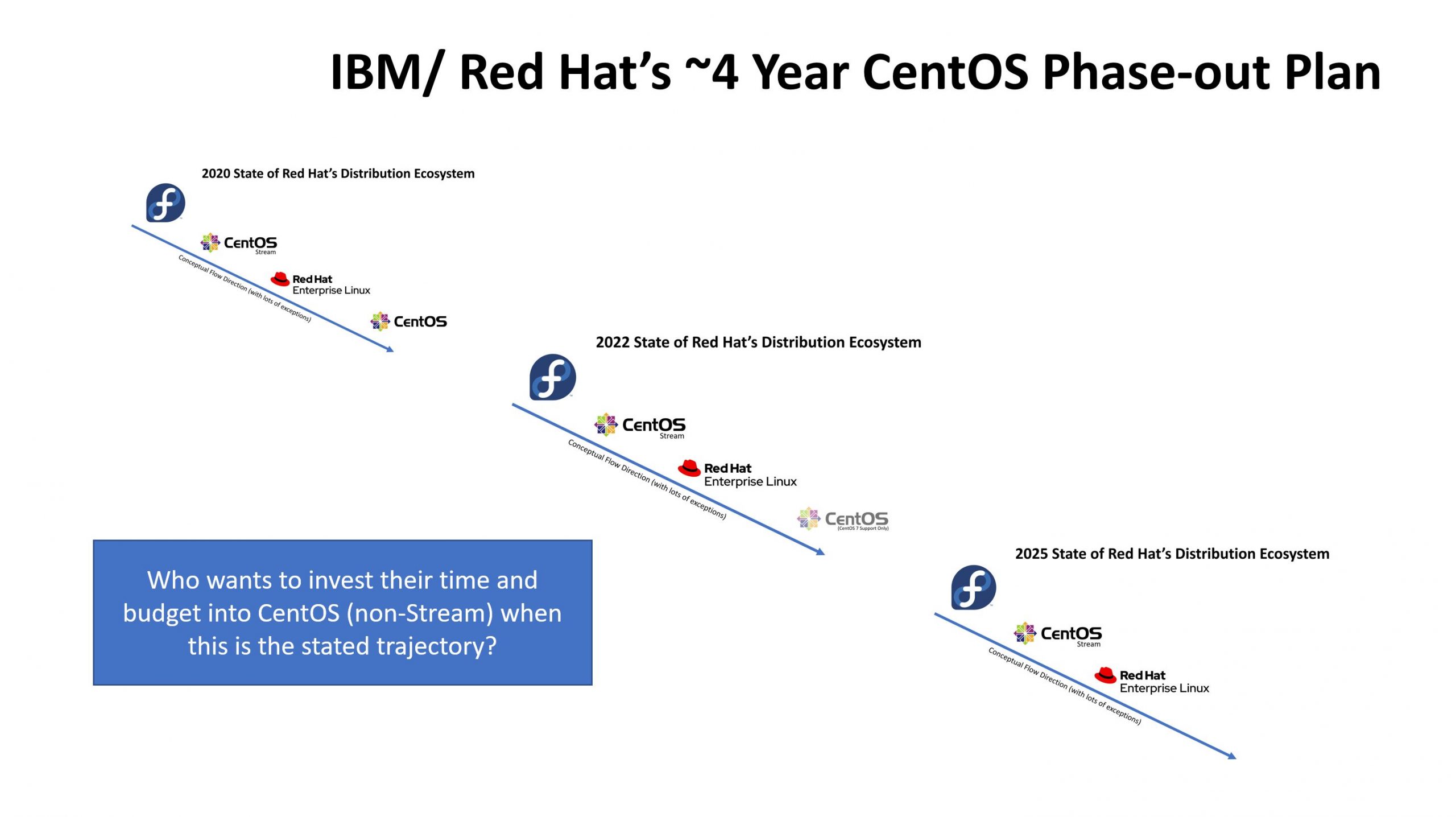Red Hat Goes Full IBM and Says Farewell to CentOS | ServeTheHome
Companies, agencies, institutions, etc
Red Hat
CentOS
IBM
YouTube
RHEL
Debian
Red Hat’s
EOL
Maintenance Updates
CentOS Stream
BigBlue Hat Enterprise Linux Stream
RHEL Stream
Q&A
Project Governing Board
the Red Hat Enterprise Linux Developer
iXsystems
TrueNAS Core
Ubuntu
Apple
Great Article
The Next Platform
HPC/Hyperscale
STH
People
Fedora
McKinseyian
Groups
RHEL
Akismet
Physical locations
No matching tags
Places
No matching tags
Locations
Linux
Events
No matching tags

Summary
Feel free to open it on YouTube and check it out there.While some will like to go back to the founding of CentOS, we instead wanted to focus on what CentOS had effectively become over the last 5-10 years: a Red Hat Enterprise Linux (RHEL) alternative without the support contract.Even if you run on Debian derivatives, you are aware of how mature the RHEL ecosystem is. Some can say CentOS was something different, but if we are being fair, a huge portion of the usage was effectively to access key parts of the RHEL ecosystem while not paying a subscription fee.In 2014, Red Hat saw the potential and the benefits to its ecosystem and brought the CentOS team in-house. In the future Fedora, CentOS Stream, then RHEL will make sense from a branding perspective, except that CentOS is so widely used that it has a history, a history that will be chronicled for decades in Q&A sites, how-tos, and other user support artifacts from the CentOS (non-stream) era.As part of the announcement, RHEL has hinted that it would be doing something with its RHEL licensing to help the CentOS community, and there is a step it could take to turn this into an amazing gambit for Red Hat: opening a non-subscription level to RHEL beyond the current developer license.“There are different kinds of CentOS users, and we are working with the CentOS Project Governing Board to tailor programs that meet the needs of these different user groups. Perhaps none are perfect, but asking CentOS users to upgrade to CentOS Stream, pay for a RHEL license, or leave the ecosystem seems like a highly imperfect set of options.The intellectually easy answer to what is happening is that IBM is putting pressure on Red Hat to hit bigger numbers in the future. It sounds an awful lot like a someone in a corner office looked at a balance sheet with little or no understanding of the product and axed it in a McKinseyian act of ignorant self-sabotage.I think this speaks more to IBM’s management than anything and is a worrisome sign as to their stewardship of Red Hat, both now and into the future.I don’t know why people are continually surprised that software required paid people to support all aspects of it.Open Source is great until no one wants to scratch the boring/uninteresting itches.I don’t think Red Hat actually owns CentOS but they effectively do.Great article.
As said here by servethehome